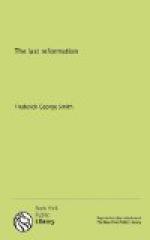The presbytery, to whom was given particular oversight and government of the church, was set apart by the Holy Ghost for this special work. Different terms, such as “elder” and “bishop,” were used to designate this office. The term “bishop,” which literally means overseer, implies the duties of the office, while “elder” denotes its rank. That these terms were used interchangeably and applied to the same order of persons is proved by Acts 20:28 (cf. 17); Phil. 1:1; 1 Tim. 3:1, 8; Tit. 1:5, 7; 1 Pet. 5:1, 2. This was admitted by many early writers, as Jerome, Augustine, Urban II, Petrus Lombardus, Chrysostom, Theodoret, and others.
From the general classification already given, let us proceed to the specific. This body was made up of elders or bishops. The fact that the terms “elder” and “bishop” were applied to all the presbyters shows equality of rank; that the office was one. We find, however, that these elders as individuals were diversified in their gifts and callings in accordance with the specific work which the Holy Ghost designed them to perform. Under one classification there were, broadly speaking, two kinds of elders—local and general; that is, those whose sphere of operation was particularly local and those whose influence, work, and responsibility extended beyond any congregational limitation. This distinction was not made arbitrarily, however; for it was essential to the performance of the twofold class of work to be done and was the inevitable result of that operation of the Spirit in individual ministers which fitted them particularly for these distinctive lines of activity.
[Sidenote: Divine gifts]
To be still more specific, we must go a step farther and consider the reason why and the process by which ministers became differentiated from other saints. In this we shall find the inner secret, both of particular spiritual organization and of divine church government. The apostle says, “By one Spirit are we all baptized into one body” and “God hath set the members every one of them in the body, as it hath pleased him” (1 Cor. 12:13, 18). These texts suggest more than a mere attachment to the body: they imply functional activity in the body. The functions of the body as described by Paul means the exercise of spiritual gifts. “Now there are diversities of gifts, but the same Spirit ... there are diversities of operations, but it is the same God which worketh all in all. But the manifestation of the Spirit is given to every man to profit withal. For to one is given by the Spirit the word of wisdom; to another the word of knowledge by the same Spirit; to another faith by the same Spirit; to another the gifts of healing by the same Spirit; to another the working of miracles; to another prophecy; to another discerning of spirits; to another divers kinds of tongues; to another the interpretation of tongues; but all these worketh that one and the selfsame Spirit, dividing to every man severally as he will” (1 Cor. 12: 4-11).




